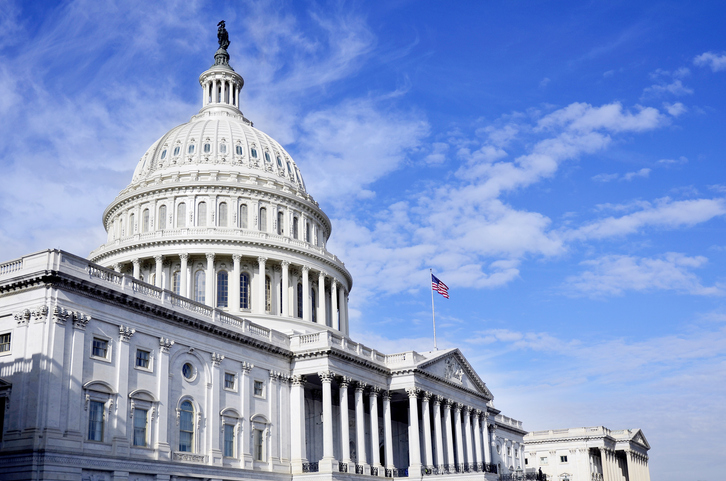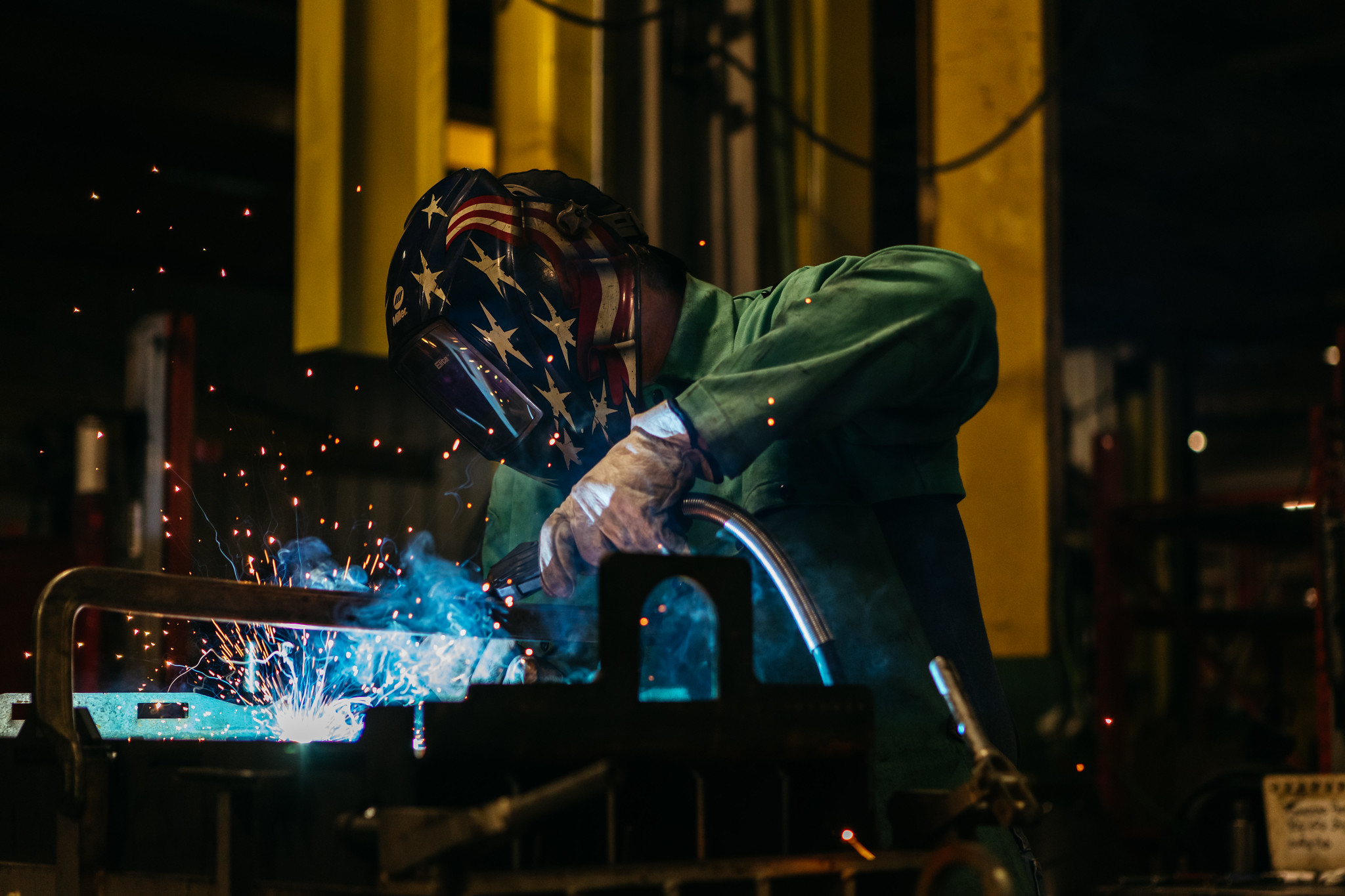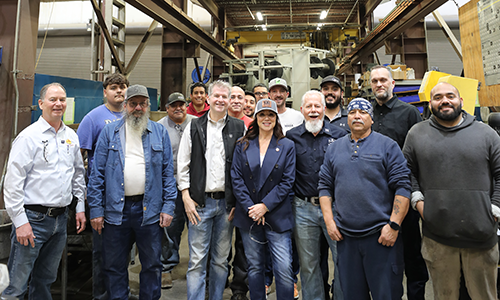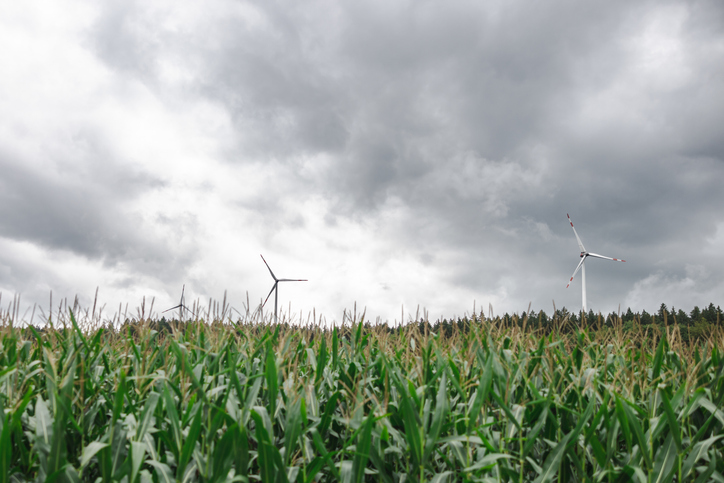Earlier this month, AEM hosted a virtual briefing for dozens of national and trade reporters on the state of the industry and some of the key policy priorities for equipment manufacturers this year. The briefing featured AEM President Dennis Slater, AEM Chair and Trimble Inc. Executive Chairman Steven Berglund, and AEM Vice Chair and AGCO Corporation Senior Vice President and General Manager, North America Robert Crain.
The mid-January discussion came at a critical time – just days before, Democratic candidates Jon Ossoff and Raphael Warnock won both Georgia Senate runoff elections. Their victories created a 50-50 split in the Senate, which means Vice President Kamala Harris will cast tie-breaking votes in her role as presiding over the Senate. This means that Democrats are now effectively in the majority in the Senate, retained their majority in the House of Representatives, and hold the executive branch, creating single party rule, also known as a trifecta.
During the briefing, Slater, Berglund, and Crain highlighted the ongoing impact of the COVID-19 pandemic on the equipment manufacturing industry, as well as the policy priorities our industry will be advocating for to the new Congress and the new Administration. Here are some key takeaways from the briefing:
Dennis Slater, on the legislation AEM will be lobbying the Biden Administration and new Congress to prioritize:
“Two areas jump out for me right away. One is, really, the focus on COVID relief and also the vaccine rollout. We have to get ourselves back to business here and we don't really see our economy recovering until that's done. So, early focus there. Also, the infrastructure investment – it's an area that isn't just investing in the roads and bridges and broadband, but it's also really investing in jobs and in the future competitiveness of our country.”
Steven Berglund, on the biggest challenge for the heavy equipment industries in the coming years and how to address it:
“I think technology in general poses a challenge to the equipment manufacturers in a very positive way. It's bringing benefits to the users, but requires a lot of changes. The machine as defined in terms of horsepower and inherent capacity is no longer necessarily the driving issue. How well that machine fits into an information architecture so that the entire construction site or the entire farm are being managed together, I think there's a whole level of challenge there. Perhaps much of the challenge will be for the manufacturers not at the manufacturing level or the product development level, but in terms of actually getting the product to the customer, the user, the farmer, or the contractor, in a good way. That's going to pose some challenges. So, I would say, beyond the macroeconomic sorts of challenges, there is a more relatively existential challenge that faces the industry as well.”
Robert Crain, on where infrastructure falls in order of legislative priorities this year and its prospects:
“I would approach it also from the perspective of bipartisanship. It goes without saying that all of us are hungry to see more bipartisanship and I think President-elect Biden, from everything that I hear, is looking for more and more of that. Infrastructure is a great topic for that to happen. I think bipartisanship brings it more to the top of the to-do list than in the past years.”
Dennis Slater, on his optimism for an infrastructure package this year:
“I think it becomes all that more important at the federal level, to really deal with this. Not just because the economy could use that jumpstart, but as a support for the states, who have really stepped in the void over the last few years and really provided the infrastructure investment. It will be a little more difficult now with the economic damage that COVID-19 has caused over the past 10 months. As they look to make their budgets work in 2021, it will be tougher for state governments to put together their infrastructure packages, too.”
Robert Crain, on getting back to work and opening up the economy and a timetable for that:
“From an agricultural perspective, our customers, our farmers, they did not take a break from the pandemic. When you're trying to feed the nation and feed the world, you plant a crop, you cultivate that crop, and you harvest that crop. You don't take a break. What the pandemic has impacted is how us as manufacturers, our distribution network, is able to support these farmers, our customers. I also think it's going to be the middle of the year and I think it's going to be dependent upon vaccinations in terms of when that happens, the effectiveness of those vaccinations. I'm reasonably optimistic that, by the middle of the year, from an agricultural standpoint, our plants, our distribution network, and our customer support groups will be back to normal.”
Steve Berglund, on the importance of expanding broadband to rural areas:
“Most of the new generation of applications, either for farms or remote construction crews out in rural areas, are increasingly relying on artificial intelligence, machine learning concepts like that, which in turn depend on access to big data and big databases. Without a robust mobile wireless connection, you deprive work crews in remote areas access to those applications. In terms of priority, I would say mobile comes first, from an industry standpoint. Simply because it enables the new generation of applications. Without the connectivity, you simply cannot use all the available technology.”
Dennis Slater, on lobbying the Biden administration to roll back President Trump’s steel and China tariffs:
“Trade is critically important to our industry; about a third of our product is destined for markets outside of the U.S. We've stood up against tariffs from the beginning, since March 2018, so I do say that we would look at having those tariffs removed. We think it’s an attack on the American worker, it raises the price of our products, and makes us less competitive in the world, so it's a priority issue.”
Some of the answers have been edited for brevity and clarity.
If you have questions or are a reporter and would like to submit a new media inquiry, contact AEM's Katrina Bishop at kbishop@aem.org.
For more AEM news and updates, subscribe to the AEM Industry Advisor.





